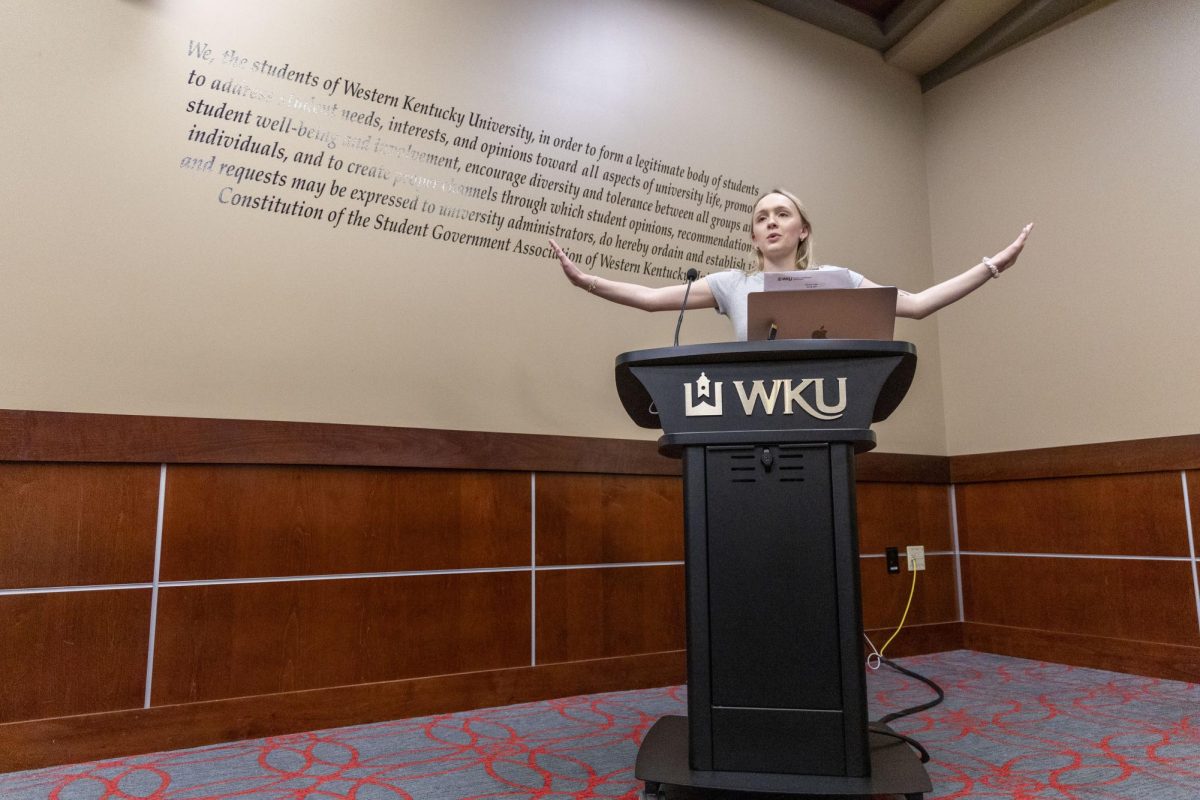University senate discusses IT policies, enrollment drop
November 22, 2013
Representatives from Information Technology visited this month’s university senate meeting to discuss and answer questions about new IT policies looking to be put into place.
The policies have attracted the attention of members of the Student Government Association and faculty and staff, who have concerns over some of the wording of the policy.
Thursday afternoon Bob Owen, vice president of IT, and Gordon Johnson, associate vice president of IT, addressed some of the concerns. They started by stating the policies were really nothing new.
“Prior to this, we had policies in place, but they hadn’t really been updated in a number of years,” Owen said.
The three policies brought before the Senate for discussion were policy 5.5010, an information security policy and implementation plan, policy 5.5020, the acceptable use policy and policy 5.5050, regarding privacy of electronic information.
Policy 5.5020 sparked the most debate during the meeting.
The policy would allow WKU to “access, seize, and/or commandeer any and all physical or electronic resources as deemed necessary to address a given situation.” It also states that students and faculty deemed as viewing or using “inappropriate content” may lose access to university Internet and email.
Shura Pollatsek, associate professor in the theatre department, was one of the many senators to speak out about the policy.
“What counts as an ‘asset?’” she said. “If I use my WKU office computer and check my personal email, does that mean you have the right to check my personal email? If I check my Facebook from that computer, do you have the right to see my Facebook? If I use my own computer, but use the WKU network, do you now have the right to that? Where does the line get drawn, because I don’t find it here in this policy.”
In response, Owen said IT does not have the time, or resources, to constantly monitor all machines on campus and would only investigate on university owned devices if proper complaint was filed, or it came to the attention of IT that illegal activity was transpiring. Personal devices can’t be searched or seized without a legal warrant, he said. However, Internet would be shut off for the device if an “attack” were launched towards the university from that device.
“Our major concerns are operational and security,” Johnson said. “If something goes on with your machine that causes an operational problem or security problem, we want to maintain the ability to go look at our machine, mitigate the problem, take care of it.”
Owen said these policies are not set in stone. He and other members of IT are open to comments and concerns regarding any new policy at any time.
The policies were not voted on.
The meeting continued with representatives giving their reports, and having them approved by the Senate.
In her report, faculty regent Patricia Minter commented on the news of WKU having 668 fewer students this semester, down 3.2 percent, and the resulting $1.6 million budget shortfall.
“As someone who absolutely would not let me name them told me today, ‘if this isn’t the bottom, then I really don’t want to see what bottom looks like,’ and I understand that,” Minter said. “It’s obvious that this is not a one time blip on the radar, it’s a wake up call.”
She said it’s time for the university to regroup, ask tough questions and move forward on the needs of the university, not just the wants.
Minter encouraged those present to speak to her with any concerns regarding this information prior to next month’s Board of Regents meeting.
Senate chair Margaret Crowder also announced the addition of a new seat to the senate.
“We’ve created (the seat) for the newly created department of Psychological science and that was as of Nov. 1,” Crowder said. “In the senate charter, we state that all those tenurable items, all those tenurable segments of the university population… can get a seat on the senate.”
The senate will meet for a final time this semester on the Thursday of finals week.












